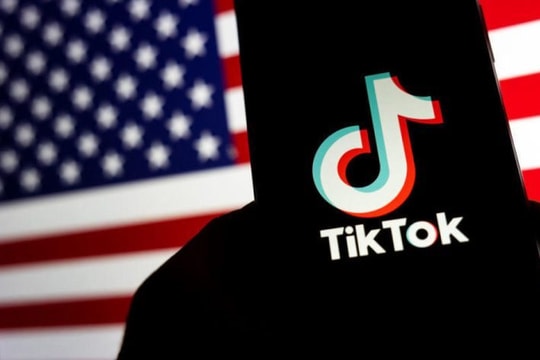How do Americans react to the TikTok ban?
The ban on TikTok in the US has become a highly controversial topic. Do Americans really support banning the app?
A new survey from the Pew Research Center (USA) has revealed a significant shift in American public opinion on the ban of TikTok. Unlike the previous survey results 18 months ago, support for banning this application has decreased significantly among both Democrats and Republicans.
This comes as the US government is setting a deadline for TikTok’s parent company, ByteDance, to sell or cease providing the app in the US market by January 19. The change in public opinion could be due to a number of factors, including national security controversies and TikTok’s media campaigns.

A Pew Research Center survey paints a clear picture of shifting public opinion on a TikTok ban in the US. The 32% of adults who support a ban in the most recent survey are down significantly from 50% in March 2023 and 38% last fall. This steady decline suggests that Americans are increasingly wary of banning a popular social media platform.
Despite the US government’s specific deadline for TikTok to be banned, half of Americans are skeptical about the possibility, saying it is “very unlikely” or even “unlikely” that it will happen.
The survey shows that public opinion in the world's number one economy has changed a lot over the past 18 months, even after 5 months after President Joe Biden signed a law requiring parent company ByteDance to divest 100% of its subsidiary TikTok or face a ban in this country.
US lawmakers have expressed deep concerns about TikTok, an app owned by Chinese company ByteDance, being able to collect and transfer US user data back home. They fear that sensitive personal information such as browsing history, location, and even biometric information could be exploited for commercial or intelligence purposes, posing a serious threat to national security.
While the survey shows a significant shift in Americans’ views on banning TikTok, it doesn’t delve into the reasons for these shifts. The lack of data on motivations makes it difficult to draw definitive conclusions about what factors influenced the shift.
Not only the American people, former President Donald Trump, who was once the harshest critic of TikTok, made a surprising turn when he opened an account on this platform earlier this year, completely opposite to the decision to ban TikTok when he was in office in 2020.
Meanwhile, Vice President Kamala Harris, a candidate running for the US presidency in 2024, also used the app to campaign during the election campaign. President Joe Biden, although he signed the bill himself, also opened an account on the platform.
Pew’s research highlights deep political divisions in views of TikTok, with Republicans and Republican-leaning independents more likely than Democrats to view TikTok as a national security risk and twice as likely to support a ban.
Still, one notable finding is the nearly 20% drop in support for a ban across each party since March 2023, suggesting the issue is becoming increasingly complex and multifaceted.
Under a law signed by President Joe Biden, ByteDance must sell TikTok or face being banned from operating in the US. The deadline was originally set for January, but could be extended by 90 days if the divestment process continues.
The Pew Research Center survey was based on 10,658 American adults, from July 15 to August 4. According to the organization, the results have a margin of error of plus or minus 1.2%.






